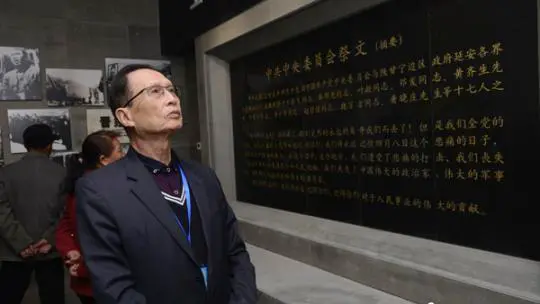Despite traditional barriers in the war-torn Afghanistan, more and more women are now joining the police to secure their future.
"I joined the Afghan National Police (ANP) to defend my country. I want to help my war-weary people. They have been suffering from war and conflicts over the past three decades. I want to serve them by providing a peaceful environment," said a policewoman Karima Sabery.
Women have shown increasing interest in joining the police force in western Afghan province of Herat.
Police training officials in Herat said that growing female trainees enrolled in the provincial police training center recently.
"Two years ago, only three women enrolled in the police training center; but up to now, 300 women have finished training and joined the police force in Herat and several dozens are receiving training here at the moment," said Colonel Mohammad Ibrahim, commander of the center.
"It is the obligation of Afghans to defend their country. We must not rely on foreign forces to be responsible for our security. The foreigners do not need to provide security in Afghanistan anymore. Now we are strong. Our army and police are entirely ready. The foreigners can go now," Sabery told Xinhua in a recent interview.
The government forces took the leading role in security operations from U.S. and NATO-led forces on June 18 this year.
The Afghan security forces will takes over full responsibilities for defending their own country when foreign combat troops are due to leave by the end of 2014.
Col. Ibrahim said that the policewomen underwent a six-week training to learn use of equipment, weaponry and self-defense as well as Afghan laws.
He said the classes for female police are separate from male in the training center 640 km west of Afghan capital Kabul.
"Serving the nation is not only the job of men. It is also our obligations to serve out country. We are determined to do so," said Zahra Mortazaie, another trainee.
Although women's rights have been considerably improved in Afghanistan over the past 11 years, they still go a long way to achieve equality with men as the rate of literacy among women remains much lower than men.
In some tribal villages, tradition requires women, especially young girls, to stay at home and bars them from attending school, a compelling practice during the Taliban rule.
"The policewomen are given privileges, they are not on duty overnight, do not take part in police operations except inspection and detention of women suspects. Other privileges are that policewomen can select which section in the police force they want to serve in and, they are never deployed to police activities outside their duty stations," Ibrahim noted.
However, the policewoman in the predominantly traditional Afghan society are still facing threats.
Militants shot dead a policewoman named Farmina while she was traveling with her husband and children in Mohmad Dara district of eastern Nangarhar province on July 21. The obvious target of the attack was Farmina since no other member of her family was hurt in the shooting.
"Misconception and objection of family members to our work in the police force have always been troublesome for some of us," Mortazaie murmured.
"But we want to prove that we can work as good as policemen," she said.
 简体中文
简体中文

